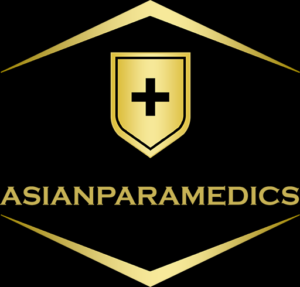Microtomy MCQs
- What is the primary function of a microtome?
- A. Staining tissues
- B. Embedding tissues
- C. Cutting thin sections of tissue ✅
- D. Observing tissues under a microscope
- Which part of the microtome is responsible for holding the blade?
- A. Stage
- B. Knife holder ✅
- C. Specimen clamp
- D. Arm
- What is the recommended thickness of a paraffin tissue section?
- A. 2-4 µm
- B. 5-10 µm ✅
- C. 15-20 µm
- D. 25-30 µm
- What is the function of the specimen holder in a microtome?
- A. To hold the blade
- B. To secure the tissue block ✅
- C. To rotate the handle
- D. To sharpen the blade
- Which type of microtome is used for sectioning frozen tissues?
- A. Rotary microtome
- B. Sliding microtome
- C. Cryostat microtome ✅
- D. Ultramicrotome
- What is the purpose of trimming in microtomy?
- A. To smooth the tissue surface
- B. To remove excess paraffin ✅
- C. To prepare the blade
- D. To stain tissues
- Which microtome is suitable for cutting ultra-thin sections?
- A. Rotary microtome
- B. Sliding microtome
- C. Cryostat microtome
- D. Ultramicrotome ✅
- What is the typical rotation speed of a rotary microtome?
- A. 5-10 rpm
- B. 20-40 rpm
- C. 50-100 rpm ✅
- D. 200-300 rpm
- Which material is commonly used for microtome blades?
- A. Steel ✅
- B. Aluminum
- C. Copper
- D. Plastic
- What is the purpose of a microtome base plate?
- A. To stabilize the microtome ✅
- B. To hold the blade
- C. To rotate the handle
- D. To trim tissue
- What is the first step in microtomy?
- A. Trimming the block
- B. Embedding the tissue
- C. Sectioning ✅
- D. Staining the tissue
- Which lubricant is commonly used to maintain microtomes?
- A. Alcohol
- B. Paraffin oil ✅
- C. Acetone
- D. Water
- What is the ideal temperature for paraffin embedding before sectioning?
- A. 40-45°C
- B. 50-55°C ✅
- C. 60-65°C
- D. 70-75°C
- Which step is crucial for maintaining tissue morphology during sectioning?
- A. Proper trimming ✅
- B. Staining
- C. Fixation
- D. Observation
- What causes tissue sections to fold during sectioning?
- A. Incorrect blade angle ✅
- B. Low freezing temperature
- C. Excess paraffin
- D. Over-rotation of the handle
- What is the typical knife angle in a microtome?
- A. 10-15 degrees ✅
- B. 20-30 degrees
- C. 35-45 degrees
- D. 50-60 degrees
- Which microtome is used for cutting hard tissues like bones?
- A. Rotary microtome
- B. Sliding microtome ✅
- C. Ultramicrotome
- D. Cryostat microtome
- What is the main disadvantage of a cryostat microtome?
- A. Requires skilled personnel ✅
- B. Time-consuming
- C. Limited to paraffin sections
- D. Cannot cut thin sections
- What is the purpose of adjusting the knife clearance angle?
- A. To control the thickness of sections ✅
- B. To maintain tissue integrity
- C. To trim excess paraffin
- D. To ensure proper embedding
- What is the maximum section thickness for light microscopy?
- A. 4 µm ✅
- B. 10 µm
- C. 15 µm
- D. 20 µm

